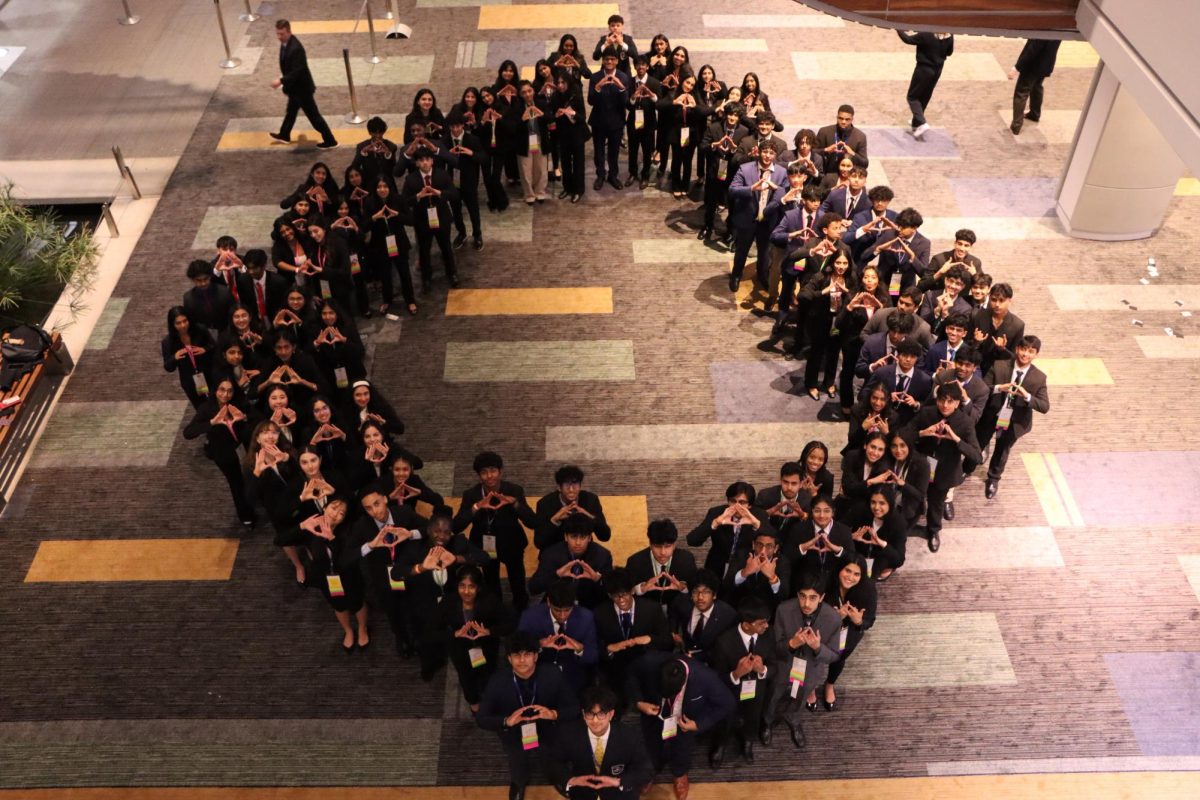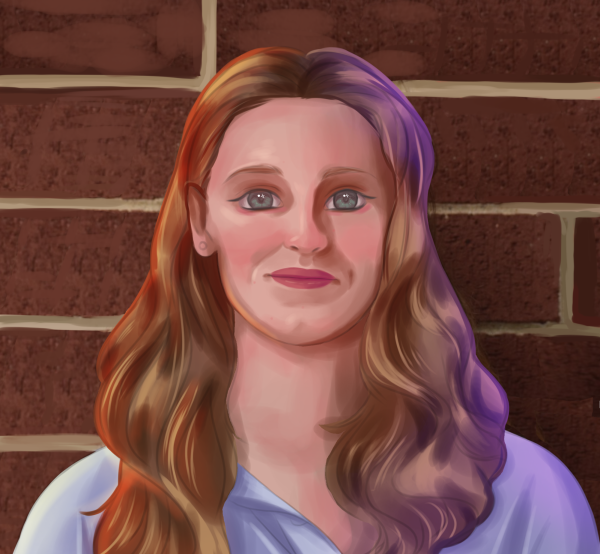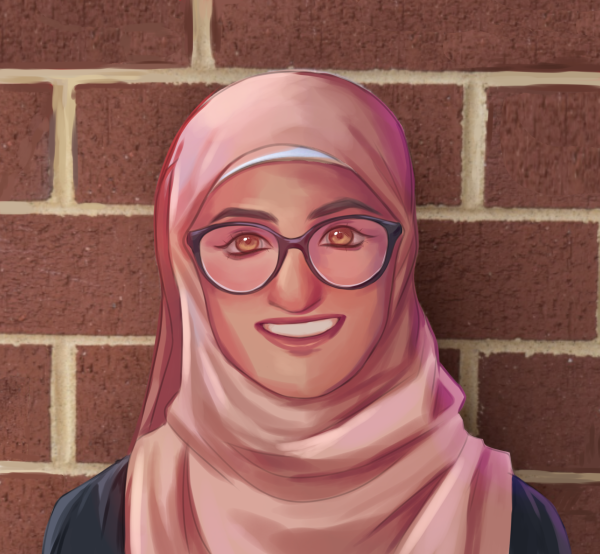Distributive Education Clubs of America (DECA) is a non-profit and technical organization for high school and college students who are interested in pursuing a career in business, marketing, finance, hospitality, and/or management. On Friday, March 1, over a hundred Rock Ridge DECA students headed down to Virginia Beach to compete at the annual Virginia DECA State Leadership Conference (SLC). The conference took place in the span of three days: Friday, March 1 to Sunday, March 3.
The competitors left on Thursday, Feb. 29, but official activities didn’t start until the next day. Friday’s schedule was filled with team bonding activities, practice sessions, and the opening session. On Saturday was competition day, where Phoenix DECA competed in the morning. Each event group is allotted 15 minutes to present their project. Preliminary awards start in the evening, which are not ICDC qualifying awards, but if your event had a test that went along with it, you got a very high score. Sunday morning was the grand awards that determine whether or not students are qualified for ICDC.
DECA provides the opportunity to become entrepreneurs and leaders in business to showcase different innovations. These products are described and explained in a paper which is worked on in the months before the competition, and a presentation is made which is presented to judges during the conference. Depending on how well they do at SLC, students can advance to the International Career Development Conference (ICDC). To qualify for ICDC, students must place within the top seven finalists for written and prepared events and the top eight for the Principles, Individual Series, and Team Decision Making categories.
Junior Lilia Jones, Top 7 Finalist
Q: What was your category and can you explain your project?
A: We are in the entrepreneurship innovation plan, and we made an app to help small businesses get noticed [by] people in the community.
Q: Why did you choose that project?
A: We knew that we got a lot of creative rights and could choose what we wanted to do. We got to build it from the ground up. We’re passionate about small businesses and we also wanted to [bring a light to] a problem that doesn’t get talked about as much.
Q: How do you feel you did at the conference?
A: I think we did really well. I’m really happy with what we placed, and our presentation went [well].
Q: Is there anything in particular you did really well?
A: Our presentation went [great] because we were very rehearsed, and our written part was well-written. There weren’t that many typos, and it exceeded our expectations in every single category.
Q: Is there anything you think you could have done better?
A: Definitely memorizing our script [for the presentation], and being more confident.
Junior Nishi Poduri, First Place Winner
Q: What was your category and can you explain your project?
A: My category was start-up business plan and [our project] was a pill dispenser to prevent prescription drug overdoses. So it would be in hospitals, so that way people can’t take advantage of their medicine.
Q: Why did you choose that project?
A: Addiction is a really big problem in our world, and we wanted to do something that would solve that.
Q: How do you feel you did at the conference?
A: I think we did pretty well. We got first place, so that’s pretty cool.
Q: Is there anything in particular you did well?
A: Our presentation was good. We didn’t stutter or anything [like that].
Q: Is there anything you think you could have done better?
A: Our paper was not the best. The stuff we were working on wasn’t great, and we could’ve done [a lot] better on that.
Sophomore Kriti Narsin, Top 7 Finalist
Q: What was your category and can you explain your project?
A: My category was Sports and Entertainment Marketing Operations Research. We had to pick a sports and entertainment company to work for, and we chose AMC. Our problem was that we [needed] to retain and attract employees into [AMC] because [the company] barely had any, so we had to create a plan and a prototype to make sure that all the employees in AMC felt like they [belong] or [create] an onboarding process.
Q: Why did you choose that project?
A: It’s our first year, so we wanted to do something exciting [and easy]. We were thinking about [a subject that] would be easier to finish because [it’s] our first year, so we couldn’t really get much of it.
Q: How did you feel you did at the conference?
A: We did really well because we made it into internationals, and we’re going to California in April, so it was really good. We thought we messed up, but we [did well].
Q: Is there anything in particular you did really well or is there anything you could improve on?
A: I think that we as a team worked so well [with one another] because we all live two houses away from each other, so we cooperated [really nicely]. We came to each other’s house every day to work on [the project], so [I think we communicated better] compared to groups that live far away from each other.
Q: Is there anything you think you could have done better?
A: Something we could have improved on is the way we didn’t memorize our lines right, and we fumbled, but it was okay because [we did well].
All in all, Phoenix DECA did a fantastic job during the SLC, earning six first-place, two second-place, and 38 ICDC finalists. In addition to that, senior Ashi Akula received a Virginia DECA scholarship, and junior Deeksha Ramankole received the Annual Report Award, which is an “instructional enrichment project for marketing education programs and DECA chapters.”




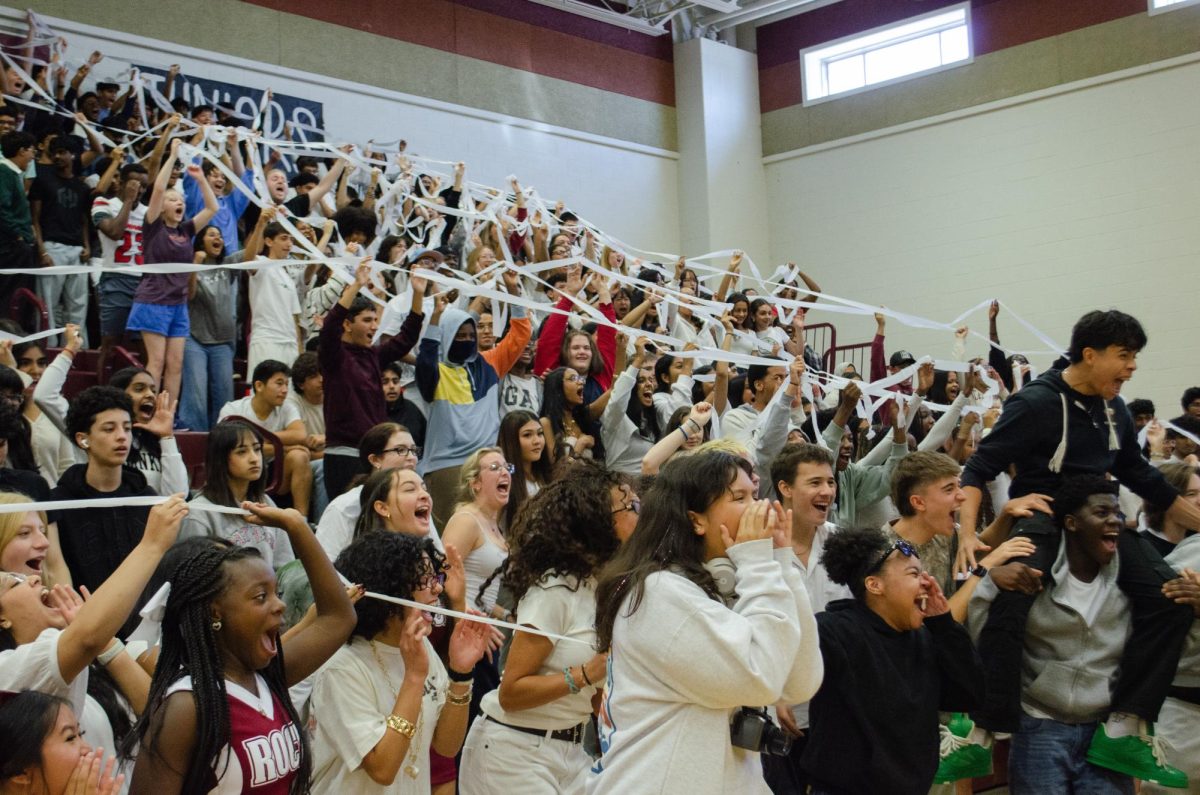
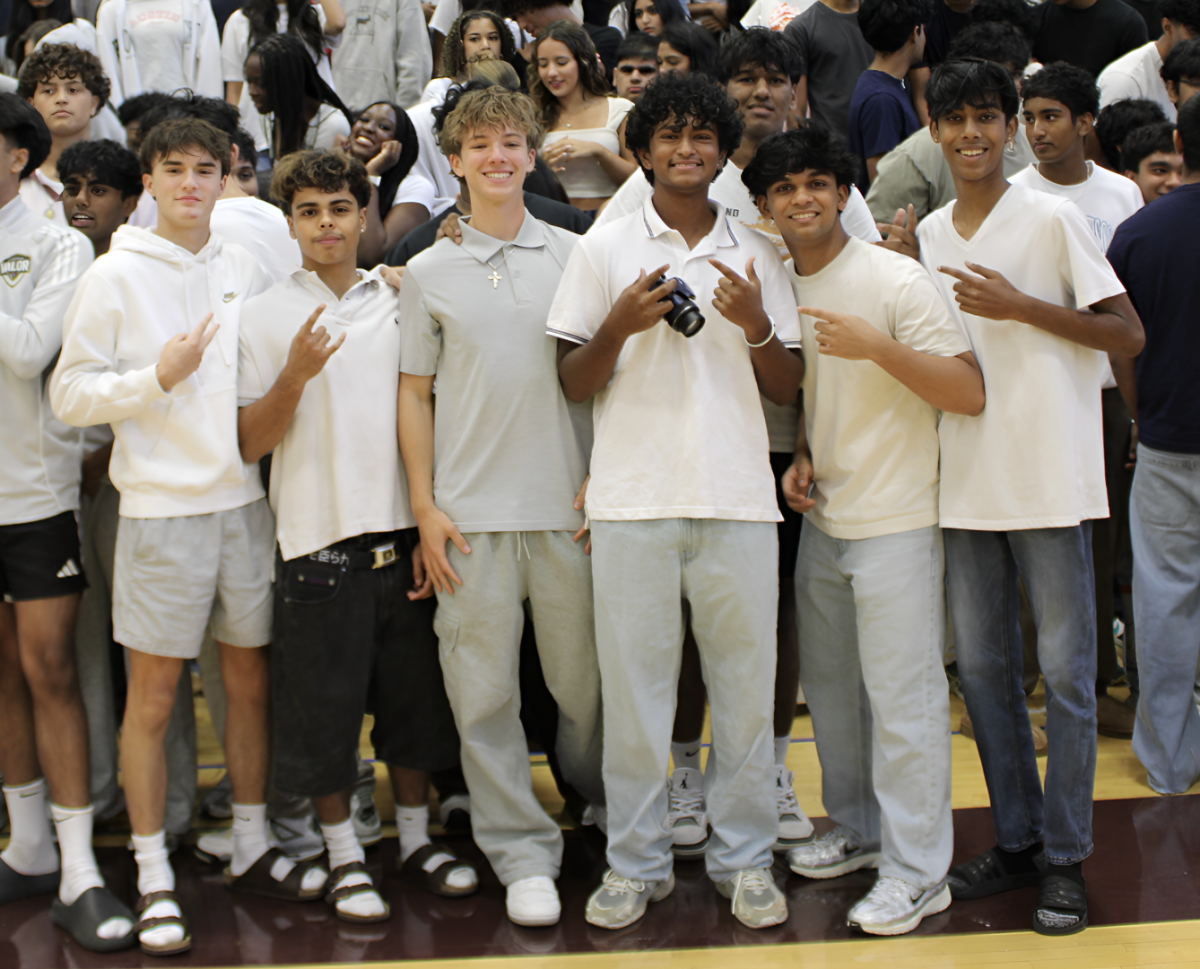









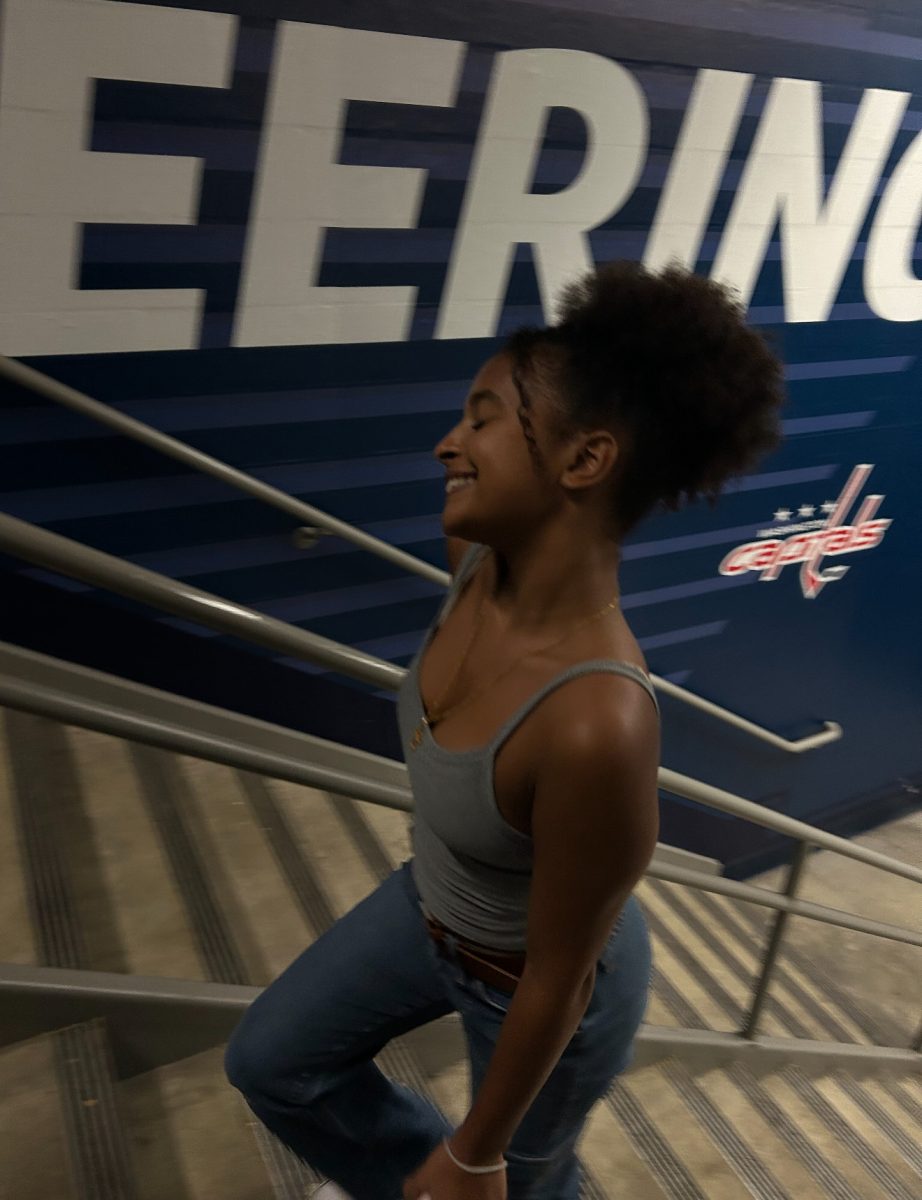



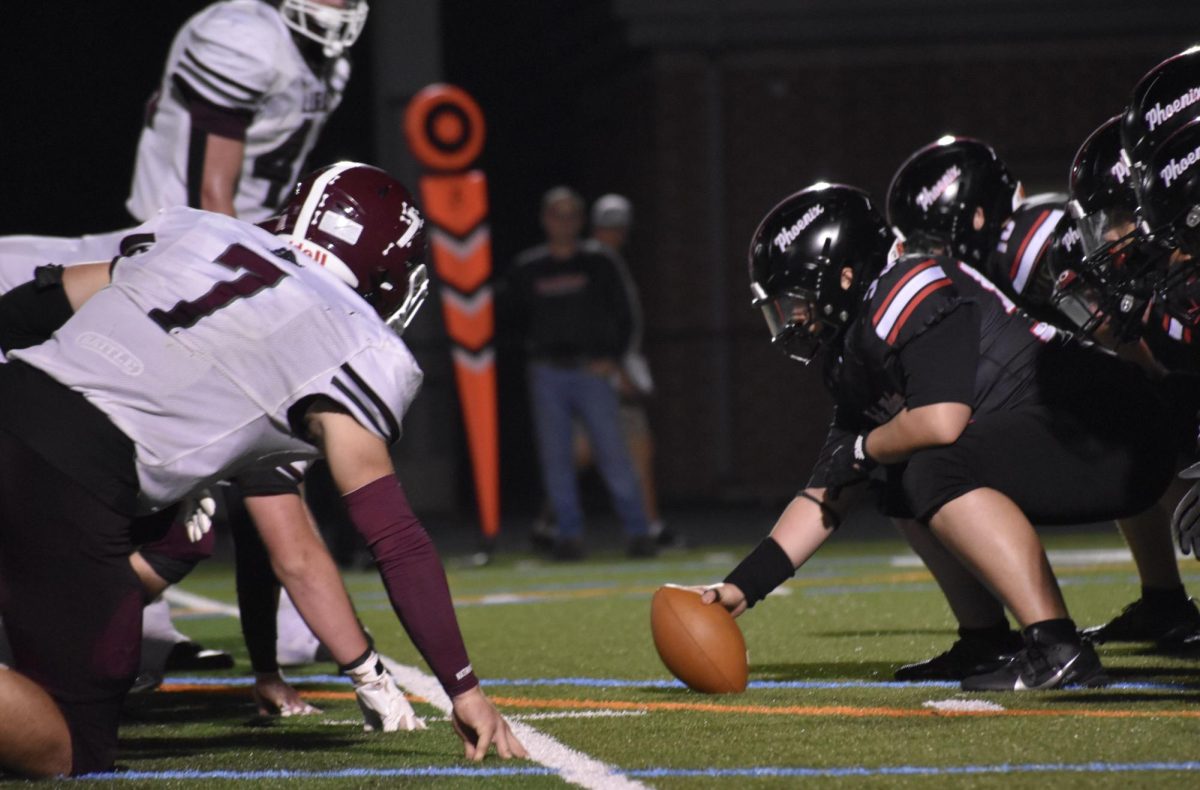





![The Phoenix varsity volleyball team lines up for the national anthem. “We were more communicative [with each other] during this game, and I feel like we kept our energy up, especially after the first set,” senior Jessica Valdov said.](https://theblazerrhs.com/wp-content/uploads/2024/10/DSC_0202-1200x800.jpg)










![Junior Alex Alkhal pitches the ball. “[I] just let it go and keep practicing so we can focus on our goal for the next game to get better as a team,” Alkhal said.](https://theblazerrhs.com/wp-content/uploads/2025/05/DSC_0013-1-1200x929.jpg)


















